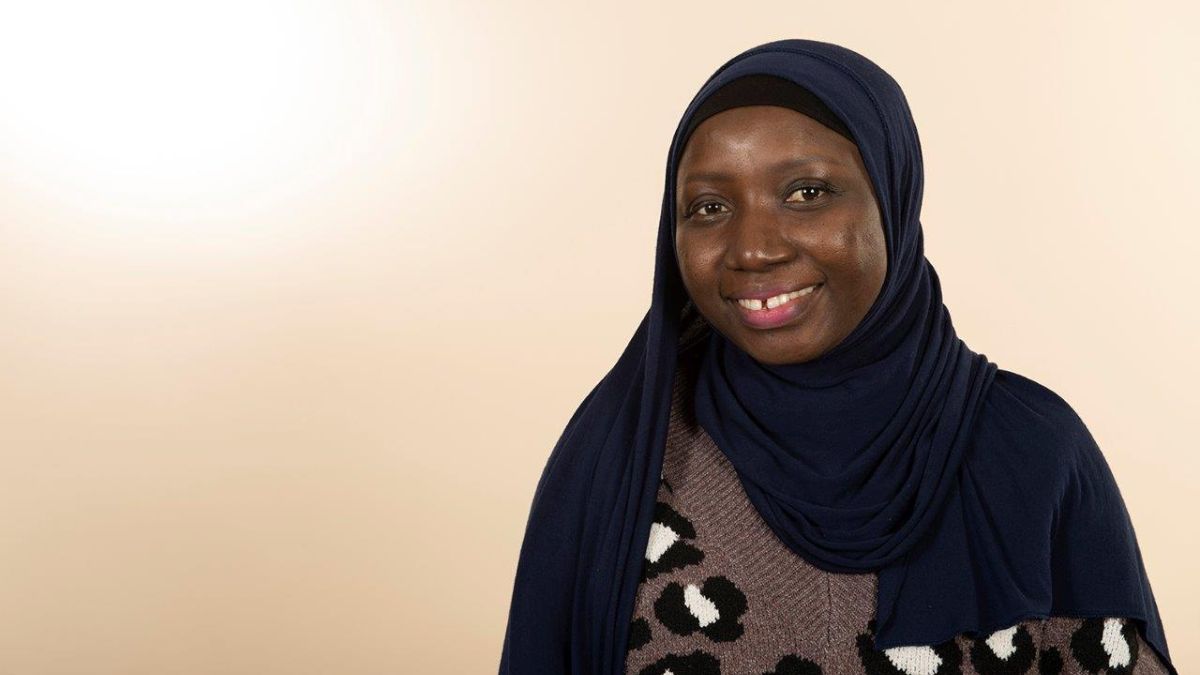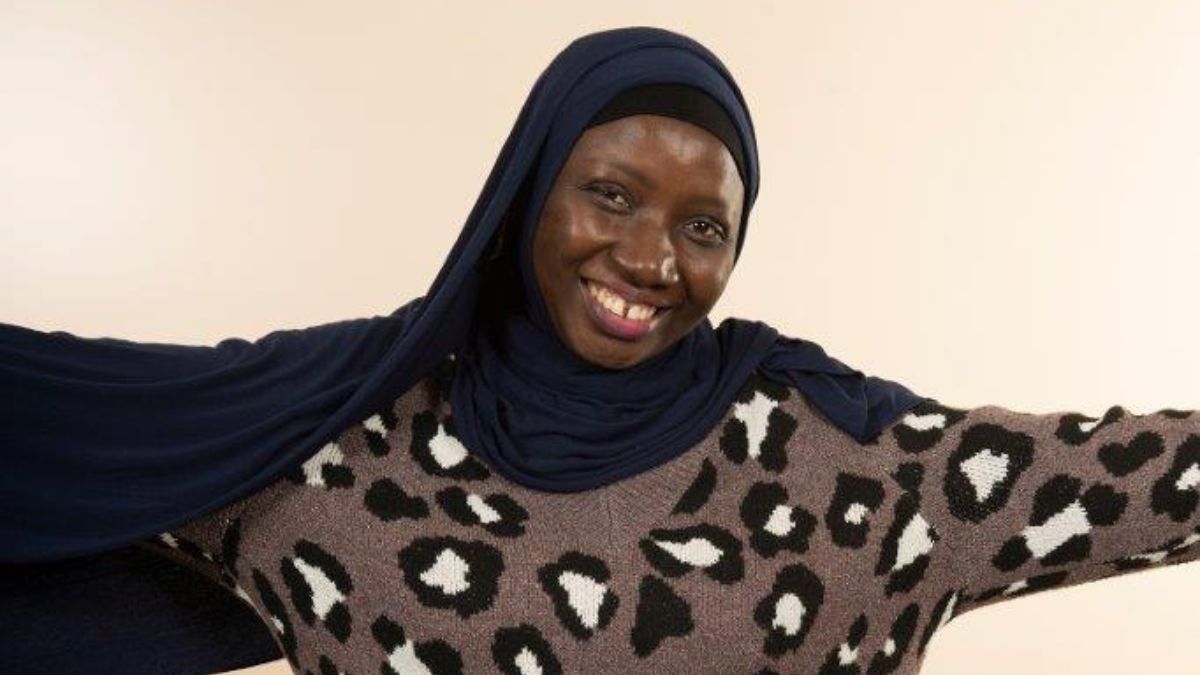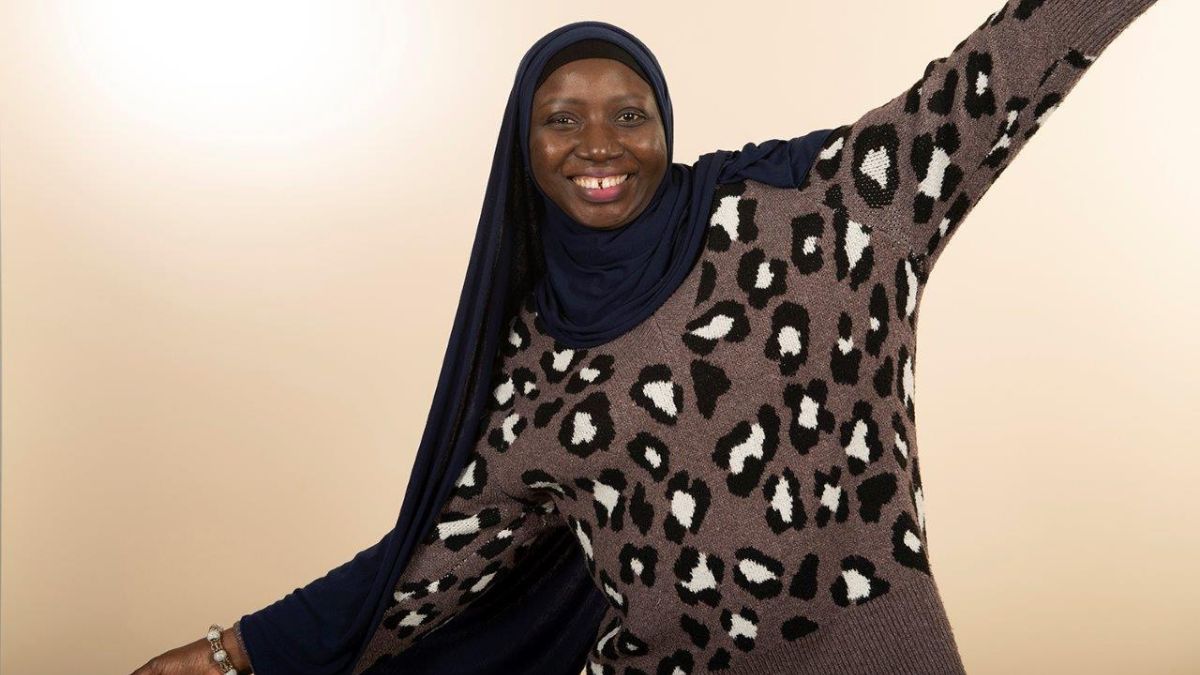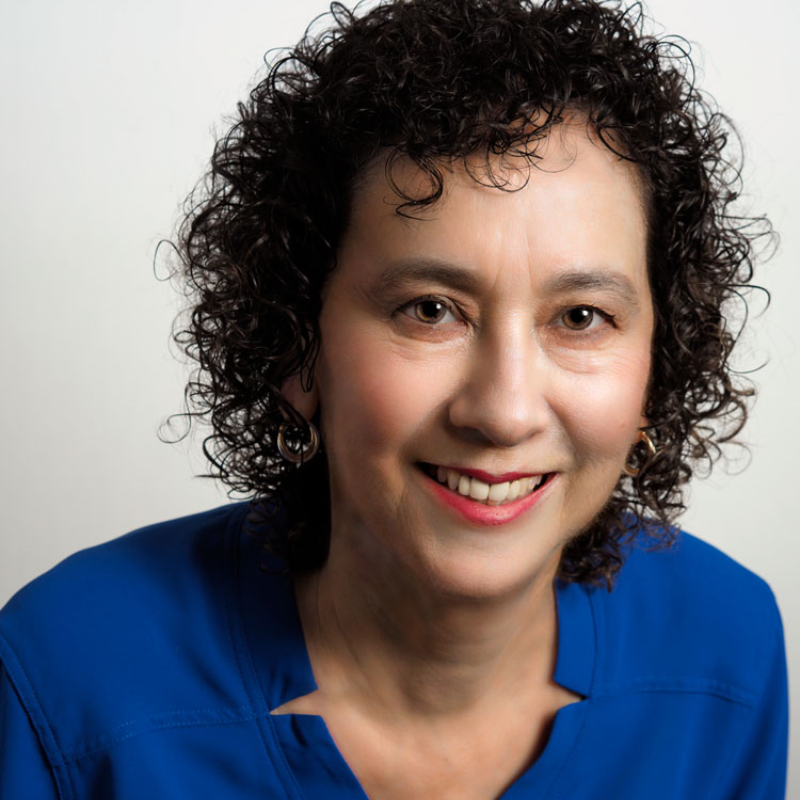Long road to treatment: Kafayat Bolaji
- 06/22/23

Many people in the United States receive all their cancer treatments within a dozen miles of their homes. Even when they must travel further, it is a trip that often takes only a few hours.
In Nigeria, cancer patients frequently travel to different cities, hundreds of miles away, for each type of treatment they need. So it was for Kafayat Bolaji. Yet at the time of her breast cancer diagnosis, even she didn’t know that she would eventually travel thousands of miles away for care.
Kafayat was doing demanding medical residency work in Kano, Nigeria, and had three young children when she noticed a lump in her left breast. After tests and conversations with her doctor, her husband (also a medical resident), her siblings, and other relatives, she decided to have a lumpectomy. Two years earlier, she had also had a breast lump and it had been benign. This time, though, the lump was breast cancer.
“My husband said I should not cry, there is still hope,” says Kafayat, who was then 32 years old. “When we got home, I just went straight to the bedroom and locked myself in. I was quite sad.” Her husband kept the children away. “He didn’t want them to see me crying.”
She and her doctor agreed that she should have a mastectomy. In March 2021, her left breast and six lymph nodes were removed. All of the nodes were positive. She had stage II breast cancer.
Kafayat continued her ophthalmology residency work during this time. She knew things would change when she started chemotherapy. “I had to stop working,” she says. “I was immunocompromised, and I could not see patients. I had to take a leave.”
She had difficult side effects from chemotherapy, including shortness of breath, low white blood cell counts, and edema. Due to pauses in treatment to deal with those symptoms, chemotherapy took more months than planned.
Disrupted plans
Radiation therapy was supposed to follow. Nigeria has few radiation centers, so Kafayat travelled more than 500 miles from her home in Kano to Lagos, Nigeria’s largest city, to receive treatment.
When she was examined, the radiation oncologist noticed a swollen lymph node in her untreated right breast. It did not contain cancer, but testing revealed a breast lump that had not been detected by a physical exam. The lump was positive for breast cancer.
Radiation was delayed so she could have surgery. In January 2022, she had a mastectomy of her right breast in the city of Ilorin, about 360 miles from her home. The cancer was stage II. After recovery, she went to Lagos for radiation. She then returned home to Kano and started oral chemotherapy.
A few months later, Kafayat noticed small skin nodules or bumps near her right mastectomy site. The nodules were positive for breast cancer and soon spread to both sides and her chest wall. She had metastatic, or stage IV, disease.
“I did not expect that I would progress from stage II to stage IV,” she says, recalling her thoughts at that time. “I just wanted to survive. I just wanted to be alive.”
Kafayat says she had good medical treatment in her home country, “but, at the same time, Nigeria does not really have everything when it comes to cancer care.” As an example, she adds, “At the time I was diagnosed, the PET scan wasn’t available in Nigeria.”

Transition to US
From the beginning, Kafayat had help nearby. “My husband was very supportive. He was always there for me. We would go together to see the doctor,” she says. Two of her sisters-in-law assisted with the children. Her parents are deceased, but her stepmother helped.
After her initial diagnosis, she wanted to go out of the country for some tests and to get a second opinion. Kafayat and her husband considered several options, including the United States. Her doctor later talked with her about getting a PET scan to detect additional sites of metastases and response to treatment. Although there were no PET scans in Nigeria then, the technology had long been used in the United States. “I got a visa and decided to come here and continue treatment,” she says.
In August 2022, Kafayat arrived in the United States. She lives with a brother and sister-in-law in Michigan, more than 5,700 miles away from her husband and children. She also has a brother and sister in California.
She left Nigeria with two doctors’ appointments set up, to determine which oncologist would be best for her. The one she chose is located close to her brother and sister-in-law’s home. Kafayat is pleased with the doctor she chose. “I think she’s on top of the treatment,” she says.
She finally had a PET scan and a genetic test. The results were good. Her treatment has changed since her arrival. Currently, she is on letrozole (Femara), ribociclib (Kisqali), and goserelin (Zoladex). She has had pain, contends with swelling from lymphedema in her left hand and right leg, and has days when she feels very fatigued.
“Initially when I first came, it was like I was getting worse,” Kafayat says. After some of her first-line medicines were changed, “it started looking better, the numbers were coming down. Right now, they’re still coming down.”

Building bonds near and far
Kafayat talks with her children and husband almost every day, usually through video calls. She has a few friends in the United States, including one in Iowa who went to medical school with her and who is also Nigerian. In addition to the family she lives with, her other two siblings call her every day.
Yet, the distance and loneliness are hard. “It’s painful. Being away from my husband and kids is the most difficult part for me,” she says. “Sometimes I’m very sad just seeing kids playing outside, and I remember my kids.”
“Most times when I have a low mood, I find someone to talk to, maybe call a friend, and I feel better,” she says. At other times, “I cry it out.”
She spends time online, finding out more about metastatic breast cancer treatment and research. At her oncologist’s office, she was given a pamphlet with resources for help and support. That’s how she learned about LBBC and our 2023 Conference on Metastatic Breast Cancer. “I saw the program line-up and I knew that I was going to benefit,” Kafayat says. She saw it as an opportunity “to make connections with people and learn more about the disease I’m dealing with.” She applied for, and received, a 2023 conference travel grant.
Kafayat met others like herself at the conference, including at a meeting for Black women. She stays in touch with them through messaging, online groups, Facebook, and Instagram. She also met experts in oncology and clinical research, whose work interested her.
“My greatest hope for now is to feel better, go back to medical practice, to my residency. That’s the biggest thing I have in front of me right now,” she says. Kafayat longs to “just physically get back to working again, being the normal me, with the side effects going away.”
She doesn’t know how soon she might see her husband and children. “It’s quite difficult right now to get a visa,” she says, and her husband must stay in Nigeria to complete his residency.
The video calls help her still be part of their lives. She guides the kids with motherly concern from afar. When she heard they weren’t reading the books she gave them before she left, she told them they must read the books and then “we will discuss them.”
On the next call, her mother-in-law reported that the children were carrying the books with them and were now reading. “They’re doing fine,” Kafayat says.
DISCLAIMER:
The views and opinions of our bloggers represent the views and opinions of the bloggers alone and not those of Living Beyond Breast Cancer. Also understand that Living Beyond Breast Cancer does not medically review any information or content contained on, or distributed through, its blog and therefore does not endorse the accuracy or reliability of any such information or content. Through our blog, we merely seek to give individuals creative freedom to tell their stories. It is not a substitute for professional counseling or medical advice.
This article was supported by the Grant or Cooperative Agreement Number 1 U58DP006672, funded by the Centers for Disease Control and Prevention. Its contents are solely the responsibility of the authors and do not necessarily represent the official views of the Centers for Disease Control and Prevention or the Department of Health and Human Services.
Stay connected
Sign up to receive emotional support, medical insight, personal stories, and more, delivered to your inbox weekly.


